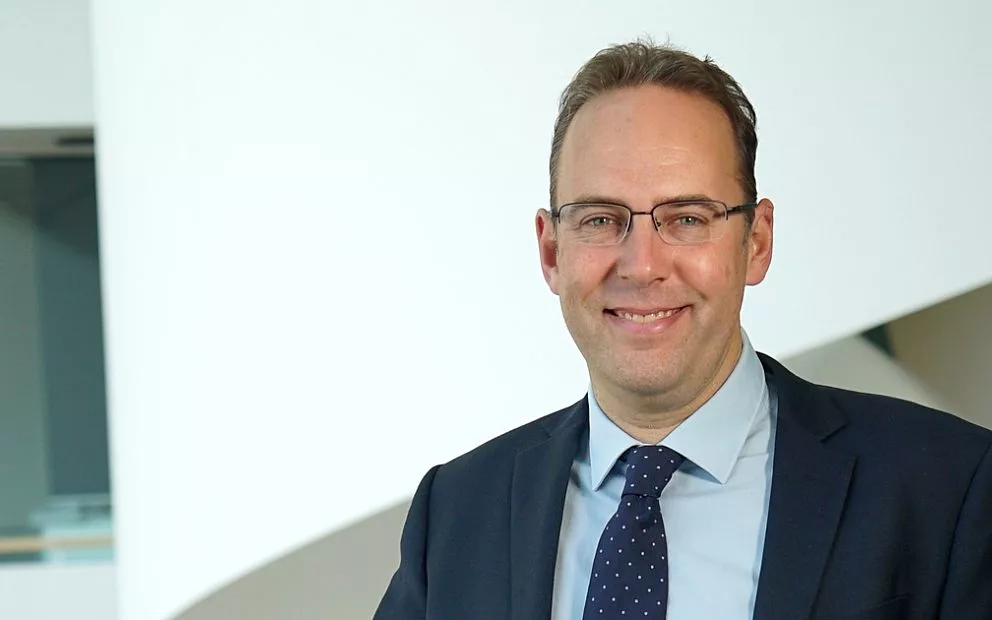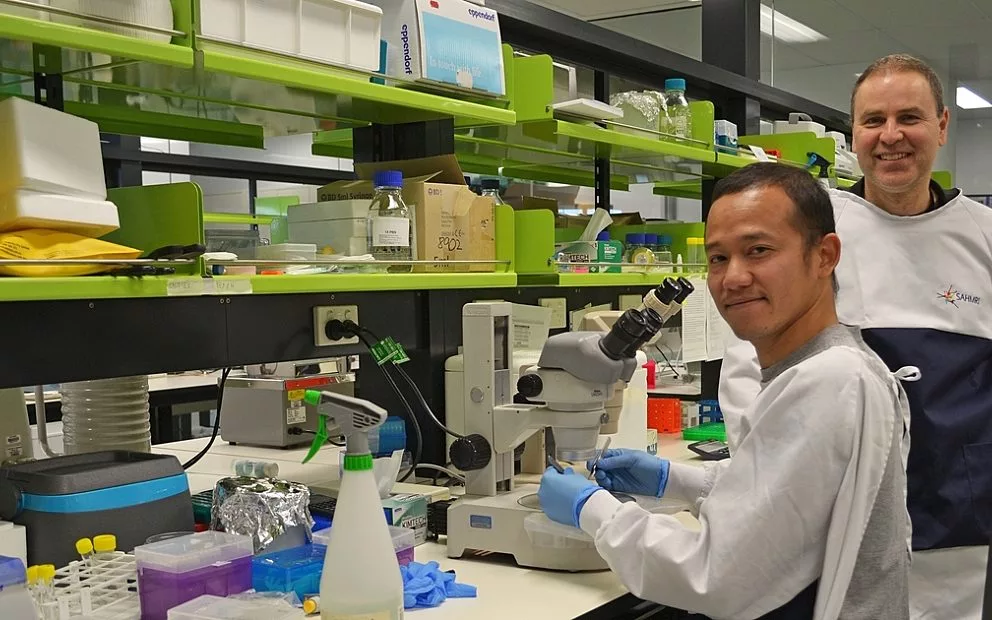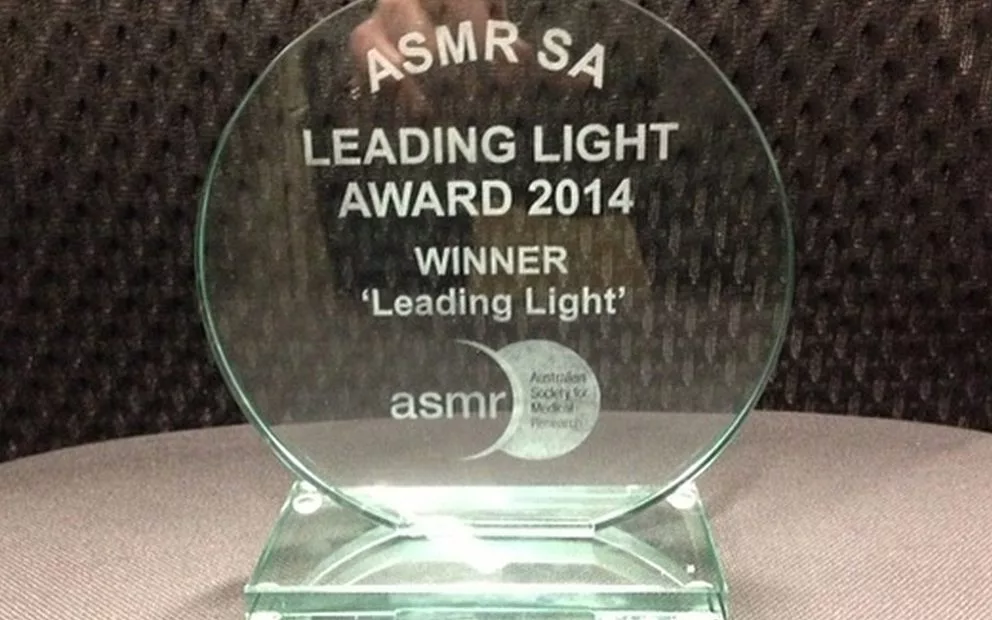The loss of a close friend to a rare blood cancer is helping inspire Associate Professor Daniel Thomas’s quest to find viable treatments for chronic myelomonocytic leukaemia (CMML).
Associate Professor Thomas, from the Adelaide Medical School at the University of Adelaide and the leader of SAHMRI’s Myeloid Metabolism Group, has been awarded more than $1.6 million in the latest round of the Federal Government’s Medical Research Future Fund grants.
He says that while rare cancer research challenges him professionally, there is also personal motivation behind this project involving a highly aggressive and currently untreatable cancer.
“Three years ago, a close friend and Leukaemia Foundation fundraiser, Roland Gale, passed away from this disease well before his time,” Associate Professor Thomas said.
“Before Roland died, he impressed upon me the importance of research for CMML as there are no known targeted treatments.”
The prognosis for people with CMML is poor with overall survival averaging between 28 and 32 months.
This Phase II study into CMML will develop a comprehensive precision medicine approach to improve outcomes for patients, building on Phase I research.
Associate Professor Thomas says his research team’s internationally-recognised expertise in precision medicine for another blood cancer – chronic myeloid leukaemia – positions them well to make advances in CMML research.
“Critical to our novel approach is cost-effective cancer sequencing services provided by SA Pathology, integrating diagnostic testing and research for patients with cancer in South Australia,” he said.
“This trial is multi-pronged such that every patient is given access to a novel treatment which is matched according to their mutation profile and that the response is carefully monitored in a way that every time-point is telling us something.
While CMML is the focus of this project, Associate Professor Thomas believes it can deliver far-ranging benefits for all people living with cancer.
“This funding opportunity is a step toward a comprehensive cancer service for precision medicine in South Australia where every cancer patient is sequenced and matched to the right treatment,” he said.
"We are perfectly positioned to study this disease because a comprehensive registry has been established by Dr Devendra Hiwase and his team at SAHMRI.”



